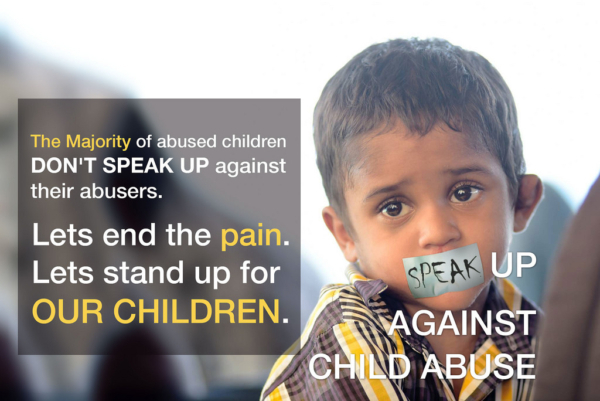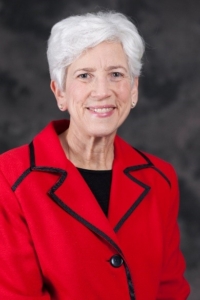

PSCP TRIFECTA
March 17, 2023
PSCP TRIFECTA
Earn credits for all 3 mandatory workshops, Child Abuse, Suicide, and Ethics
Friday, March 17, 2023
All Day Training
Location: Online Workshop
Updated Child Abuse and Trafficking Recognition and Reporting Training for Mandated Reporters in Pennsylvania: 2021-2023 Update
Presented By: Linda K. Knauss, Ph.D. ABPP
Registration: 7:45am Program: 8:15am to 11:15am
3 CE credits
Act 31 Credits
Act 48 Credits Available
Important note: Even if you have taken this course during your last licensing period, this course is updated, allows for new CE credits, and satisfies your new requirement with the state of Pennsylvania in this new licensing period.
In accordance with a Pennsylvania mandate for all health care professionals and funeral directors, PSCP: The Psychology Network presents this three hour workshop to discuss the obligation of mandated reporters and moral obligation of permissive reporters to report reasonable suspicions of child abuse and child labor and
sexual trafficking.
Objectives:
- Discuss the differences between Child Protective Services and General Protective Services in Pennsylvania.
- Describe Components of Child Abuse and Exclusions to Child Abuse.
- List common signs and symptoms of Child Abuse.
- Describe Mandated and Permissive Child Abuse Reporters and Penalties for not reporting.
- Describe Sex and Labor Trafficking and Methods of Reporting.
 Linda K. Knauss, Ph.D., ABPP, is a professor at Widener University’s Institute for Graduate Clinical Psychology. She has served as the Chair of the Ethics Committees of the American Board of Professional of Professional Psychology, the American Psychological Association, the Pennsylvania Psychological Association and as Co-chair of the Philadelphia Society of Clinical Psychologists’ Ethics Committee. Dr. Knauss has authored several book chapters and journal articles on ethics and has taught ethics at many local universities as well as continuing education workshops on a variety of topics in ethics.
Linda K. Knauss, Ph.D., ABPP, is a professor at Widener University’s Institute for Graduate Clinical Psychology. She has served as the Chair of the Ethics Committees of the American Board of Professional of Professional Psychology, the American Psychological Association, the Pennsylvania Psychological Association and as Co-chair of the Philadelphia Society of Clinical Psychologists’ Ethics Committee. Dr. Knauss has authored several book chapters and journal articles on ethics and has taught ethics at many local universities as well as continuing education workshops on a variety of topics in ethics.
Dr. Knauss is the past-president of the Pennsylvania Psychological Association, the Pennsylvania Psychological Foundation, and the Philadelphia Society of Clinical Psychologists. She was also a member of the American Psychological Association’s Council of Representatives (2000-2006; 2013-2018 representing Pennsylvania). Dr. Knauss is the recipient of a 2015 APA Presidential Citation for her work in APA as well as the recipient of the 2002 Ethics Educators Award presented by the Pennsylvania Psychological Association’s Ethics Committee, and the recipient of the 2004 Pennsylvania Psychological Association Distinguished Service Award.
Dr. Knauss maintains a private practice where she sees children, adolescents, adults and families.
Is the sky really falling? The current scene in college student suicide
Presented By: Jeffrey Hayes, Ph.D.
Registration: 11:15am Time: 11:45am to 12:45pm
1 CE Credits
Suicide is the second leading cause of death among adolescents and young adults in the United States. This presentation will describe recent trends in college student ideation and behavior based on national and state-level data examining students who are and are not in psychotherapy. Variables that predict suicide behavior among college students, as well as four types of suicidal college student clients, will be presented.
Objectives:
- Identify suicide prevalence rates among college students
- Describe factors that have been found in previous research to predict suicide risk
- List variables associated with suicide behavior in a recent, national study of college students
 Dr. Jeffrey Hayes is a professor at the Pennsylvania State University, where he has been a faculty member since 1993. Throughout his career, Dr. Hayes has researched and written about psychotherapy, focusing primarily on the characteristics of treatment providers that affect therapy process and outcome. During the past decade, he has also conducted research on college student mental health. Dr. Hayes has more than authored more than 100 publications, including two books. His research has been funded by several agencies, including the American Psychological Foundation and the American Foundation for Suicide Prevention. He has received early career awards from both the Society for Psychotherapy Research and the American Psychological Association, where he is a fellow in two divisions. Dr. Hayes has served as President of the North American Chapter of the Society for Psychotherapy Research, was chair of the Education and Training Committee for the American Psychological Association’s Division of Psychotherapy, and was associate editor of the Journal of Counseling Psychology. Dr. Hayes is currently the editor of Psychotherapy Research. He is a licensed psychologist and has provided psychotherapy to adults for the past 25 years. He lives with his wife, who is a psychologist in independent practice, in State College, PA.
Dr. Jeffrey Hayes is a professor at the Pennsylvania State University, where he has been a faculty member since 1993. Throughout his career, Dr. Hayes has researched and written about psychotherapy, focusing primarily on the characteristics of treatment providers that affect therapy process and outcome. During the past decade, he has also conducted research on college student mental health. Dr. Hayes has more than authored more than 100 publications, including two books. His research has been funded by several agencies, including the American Psychological Foundation and the American Foundation for Suicide Prevention. He has received early career awards from both the Society for Psychotherapy Research and the American Psychological Association, where he is a fellow in two divisions. Dr. Hayes has served as President of the North American Chapter of the Society for Psychotherapy Research, was chair of the Education and Training Committee for the American Psychological Association’s Division of Psychotherapy, and was associate editor of the Journal of Counseling Psychology. Dr. Hayes is currently the editor of Psychotherapy Research. He is a licensed psychologist and has provided psychotherapy to adults for the past 25 years. He lives with his wife, who is a psychologist in independent practice, in State College, PA.

Working with Relationships Using a Positive Ethics Frame
Presented By: Jeanne M. Slattery, Ph.D.
Registration 1pm Program: 1:30pm to 4:30pm
3 CE Credits
This interactive webinar distinguishes between positive and remedial ethics frameworks, then invites participants to consider ethical dilemmas relating to boundaries and multiple relationships. Dilemmas will take a variety of forms including in-home treatment, decisions to return to in-office treatment after COVID, and multiple relationships or conflicts of interest.
Objectives:
- Identify and describe remedial ethics and positive ethics.
- Identify factors that are used to make ethical decisions about boundaries and relationships in clinical work;
- Apply a positive ethics frame to ethical dilemmas.
 Jeanne M. Slattery, Ph.D., is Professor of Psychology at Clarion University and has authored or coauthored Empathic counseling: Building skills to empower change (2020); Trauma, meaning, and spirituality: Translating research into clinical practice (2017); and Counseling diverse clients: Bringing context into therapy (2004). She is currently serving as president of Pennsylvania Psychological Association, where she has led a series of conversations on ethical dilemmas that have become a regular column in Pennsylvania Psychologist. She has a small private practice working with adults and children with mood and anxiety disorders, especially subsequent to a history of trauma.
Jeanne M. Slattery, Ph.D., is Professor of Psychology at Clarion University and has authored or coauthored Empathic counseling: Building skills to empower change (2020); Trauma, meaning, and spirituality: Translating research into clinical practice (2017); and Counseling diverse clients: Bringing context into therapy (2004). She is currently serving as president of Pennsylvania Psychological Association, where she has led a series of conversations on ethical dilemmas that have become a regular column in Pennsylvania Psychologist. She has a small private practice working with adults and children with mood and anxiety disorders, especially subsequent to a history of trauma.
PSCP: The Psychology Network is approved by the American Psychological Association to sponsor continuing education for psychologists. PSCP: The Psychology Network maintains responsibility for this program and its content.

